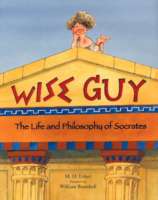
A biography of Socrates, a philosopher and teacher in ancient Greece who held that wisdom comes from questioning ideas and values rather than simply accepting what is passed on by parents and teachers.

A biography of Socrates, a philosopher and teacher in ancient Greece who held that wisdom comes from questioning ideas and values rather than simply accepting what is passed on by parents and teachers.
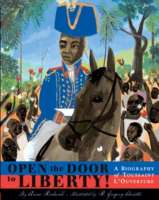
The story of revolution leader Toussaint L’Ouverture of St. Domingue (now Haiti).The island now known as Haiti was once a French colony called St. Domingue, where white plantation owners forced hundreds of thousands of African slaves to farm sugar cane. Toussaint L’Ouverture was one of those slaves . . . but not for long. The day would come when L’Ouverture would lead his island’s slaves into a revolution for freedom, and his efforts would influence the course of world history.
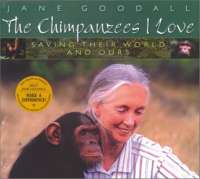
As a child, Jane Goodall dreamed of living with the wild animals of Africa. As a young woman, she amazed the world with her groundbreaking discoveries about chimpanzees, which she documented in her acclaimed National Geographic television specials. Ever since, Dr. Goodall has campaigned unceasingly for the protection of the chimpanzee, now an endangered species.

At just 15, her mother, and brother were taken from their Romanian town to the Auschwitz-II/Birkenau concentration camp. When they arrived at Auschwitz, a soldier waved Elly to the right; her mother and brother to the left. She never saw her family alive again. Thanks to a series of miracles, Elly survived the Holocaust. Today she is dedicated to keeping alive the stories of those who did not. Elly appeared on CBS’s 60 Minutes for her involvement in bringing an important lawsuit against Volkswagen, whose German factory used her and other Jews as slave laborers.

A former member of the underground Dutch resistance force against the Nazis recounts her two years of covert meetings, perilous deliveries, near-confrontations, and life sentencing while she was still a teenager.
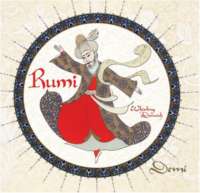
Born in Afghanistan in the thirteenth century, Rumi settled in Turkey and became a great mystical poet. Although he began his adult life as a highly respected scholar, he found his true calling after being mentored by a holy man, Shamsuddin. From “Shams,” he learned to listen for the sacred sound of God within himself. When his creative spirit was awakened, he recited more than 50,000 rhymed couplets. He also wrote about the love that resides in the soul of everyone regardless of religion or background. He founded the order of the whirling dervishes who believed their spinning dances put them in touch with God and brought peace and love into the world. Although Rumi died 800 years ago, his poems are more widely read now than ever before. To honor the 800th anniversary of his birth, the United Nations declared 2007 The Year of Mawlana Jalaladdin Rumi.
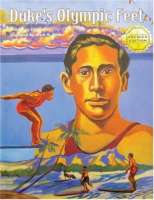
Duke Kahanamoku was the twentieth century’s top waterman, and is known as the “father of international surfing.” The first Hawaiian to win an Olympic gold medal, Duke represented the United States in the Olympic Games in 1912, 1920, 1924 and 1932, winning gold, silver and bronze medals. Born in 1890, Duke grew up next to the ocean in Waikîkî. After school, he and his sister and brothers would hit the water. “I was only happy when I was swimming like a fish,” Duke said. Duke and the other beach boys gathered under a hau tree in Waikîkî. They rode the waves at Castles, a prime surf spot, on their sixteen-foot solid wooden surfboards. Years of swimming, surfing and canoe paddling made Duke a fine athlete. He had a strong body, long arms, powerful legs and his hands were said to be as big as buckets. Some claimed he had feet as big as fins and could steer a canoe with his feet alone. Duke knew that he was a very fast swimmer and he trained constantly. He said that God had given him a gift and a whip. “The whip,” he said with a grin, “is to flog myself into getting the most out of the gift.” He felt that, just maybe, he could be a champion and win Olympic gold for Hawai‘i. His chance came August 12, 1911, at Alakea Slip in Honolulu Harbor, when he demolished the world amateur record for the 100-yard freestyle. His excitement was crushed when mainland AAU officials refused to believe his time. “What are you using for stopwatches over there in Hawai‘i?” they asked. “Alarm clocks?” The AAU officials doubted that a virtually untrained swimmer could break a world record. It was up to Duke to prove he could go up against the world’s fastest swimmers and beat them. Along with his athletic accomplishments, Duke is remembered for his concern for others, humility in victory, courage in adversity and good sportsmanship.
Take a closer look at Duke’s Olympic Feet as examined in WOW Review.
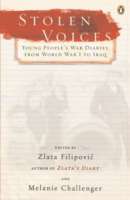
Zlata Filipovic’s diary of her harrowing war experiences in the Balkans, published in 1993, made her a globally recognized spokesperson for children affected by military conflict. She and co-editor Melanie Challenger have gathered fifteen diaries of young people coping with war, from World War I to the struggle in Iraq that continues today. Profoundly affecting testimonies of shattered youth and the gritty particulars of war in the tradition of Anne Frank, this extraordinary collection— the first of its kind—is sure to leave a lasting impression on young and old readers alike.
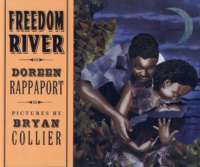
Describes an incident in the life of John Parker, a formerly enslaved person who became a successful businessman in Ripley, Ohio, and who repeatedly risked his life to help other slaves escape to freedom.
Coretta Scott King Illustrator Honor Books
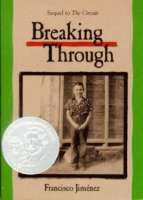
At the age of fourteen, Francisco Jiménez, together with his older brother Roberto and his mother, are caught by la migra. Forced to leave their home, the entire family travels all night for twenty hours by bus, arriving at the U.S. and Mexican border in Nogales, Arizona. In the months and years that follow, Francisco, his mother and father, and his seven brothers and sister not only struggle to keep their family together, but also face crushing poverty, long hours of labor, and blatant prejudice. How they sustain their hope, their goodheartedness, and tenacity is revealed in this moving sequel to The Circuit. Without bitterness or sentimentality, Francisco Jiménez finishes telling the story of his youth.